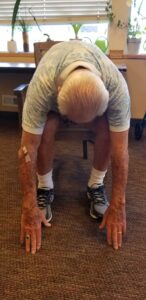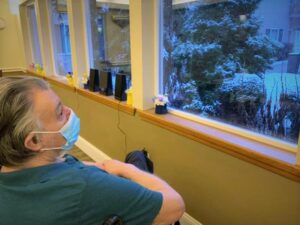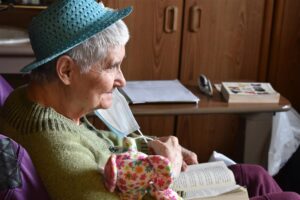When you think about the well-being of the elderly loved ones in your life, do you just focus on their medical needs, or do you factor in their mental and emotional needs as well?
The average life expectancy of people here in the US increased by nearly 30% between 1900 and 2000. This is a remarkable statistic, although it also opens the door for some thoughtful consideration into how all these extra years of life are being spent.
Which is more valuable: quantity or quality?
Let’s consider for a moment that quality is more valuable. Now, reconsider the elderly loved one in your life and how they are spending their quantity of time. Do they feel valued, satisfied, and appreciated? Is their time being spent on fulfilling and rewarding activities that elevate their overall well-being? Do they have a positive mindset and perspective on life?
Living a life of purpose is important, but as we age, it becomes imperative. A strong mind also has positive impacts on cognition, appetite, and physical health.
There are ways you can help your loved one achieve this…
Create a Sense of Purpose for Seniors
The first and arguably the most important way to improve the quality of life of your senior is to create a sense of purpose for them. Everyone, old and young, wants to feel useful and valued.
While mobility decreases as we age, there are still a lot of ways that you can engage a senior to offer them opportunities to feel needed and provide them with a sense of purpose. If you’re a family caregiver at home, you can ask them to help with feeding the pets (if you have any), folding laundry, clipping coupons, or short stints of watching their grandchildren (maybe even supervised, if mobility and cognition are of issue). Having your senior loved one help create the week’s shopping list and then accompanying you to the grocery store is also a way to create purpose but also get them out of the house into social settings.

A resident at Spruce Point Assisted Living (Florence, OR) helps write holiday greetings.
Encourage Regular Physical Exercise
Physical activity, regardless of how strenuous, help keep our bodies and minds balanced and positive. As we age, regular movement is paramount, helping to boost their immune system, improve their heart health, relieve anxiety, lower their blood pressure, and retain muscle and bone mass, among many other benefits. Encourage exercise as much as you can. However, know their limits as not to overwork their bodies and possibly even create injury.
A few exercises to consider are seated yoga, short walks outdoors, water aerobics, and resistance band workouts that can be done either seated or standing.

Residents at Summit Place Assisted Living practice their daily stretches to stay nimble (Bellingham, WA)
Recognize and Treat Signs of Depression
Seniors are very susceptible to stress and depression. For many seniors, depression is induced by pain, chronic illness, loss of employment, death of a friend or relative, prolonged medication, or cognitive impairment.
Since stress and depression are serious disorders, stay on the lookout for these signs and encourage your seniors to consider receiving professional guidance and help as early as possible. Some of the signs you can look out for include irritability, fatigue, persistent sadness, unexplained aches, insomnia, lack of concentration, and feeling hopelessness.

This resident takes a moment to reflect while also taking in the new snowfall outside of Sunnyside Assisted Living. (Sunnyside, WA)
Get the Services of Skilled Professionals
Caring for your senior loved one is one of the most rewarding and fulfilling duties you can perform. That said, it is also an exhausting, stressful, and oftentimes a scary journey to be on.
Caregiver burnout is not just a saying. When you consistently give your time and energy to someone that requires your assistance, your needs can often be put on the backburner. Needs that are imperative to you functioning at your highest level and being capable of providing quality care to your loved one. For this, consider a senior care community that can offer “respite” services so you can regroup, refresh, and refill your own needs. This can make all the difference in your mindset and the quality of care you’re providing. The last thing you want is for your loved one to feel your stress and exhaustion, inadvertently making them feel guilty or like a burden.
There may even come a time when your loved one’s needs exceed your own knowledge or capabilities. In this instance, know that it’s okay (and it’s not giving up) to reach out to an assisted living facility where 24/7 nursing care is available, but also where independence, camaraderie with peers, and daily activities are offered.

A long-term care resident enjoys a quiet afternoon of reading at Mt. Baker Care Center (Bellingham, WA)
Nightingale Healthcare is a family-owned healthcare management group that owns and operates skilled nursing and assisted living communities throughout Washington State and Oregon. Please contact us with any questions or concerns regarding your senior loved one and let us know how we can help them live their best life!
